How AI is Powering the Future of Digital Marketing
28 December 2024
Digital marketing is moving fast—like, blink and you’ll miss it fast. With so much competition for attention, brands are always on the lookout for the next big thing to give them an edge. And boy, has AI stepped up to the plate! Artificial Intelligence (AI) is no longer just a cool buzzword thrown around by Silicon Valley tech heads; it’s transforming the way businesses promote their products and services. From personalized ads to predictive analytics, AI is everywhere in marketing. But how exactly is it reshaping the digital marketing landscape? Let’s dive in and explore how AI is powering the future of digital marketing.
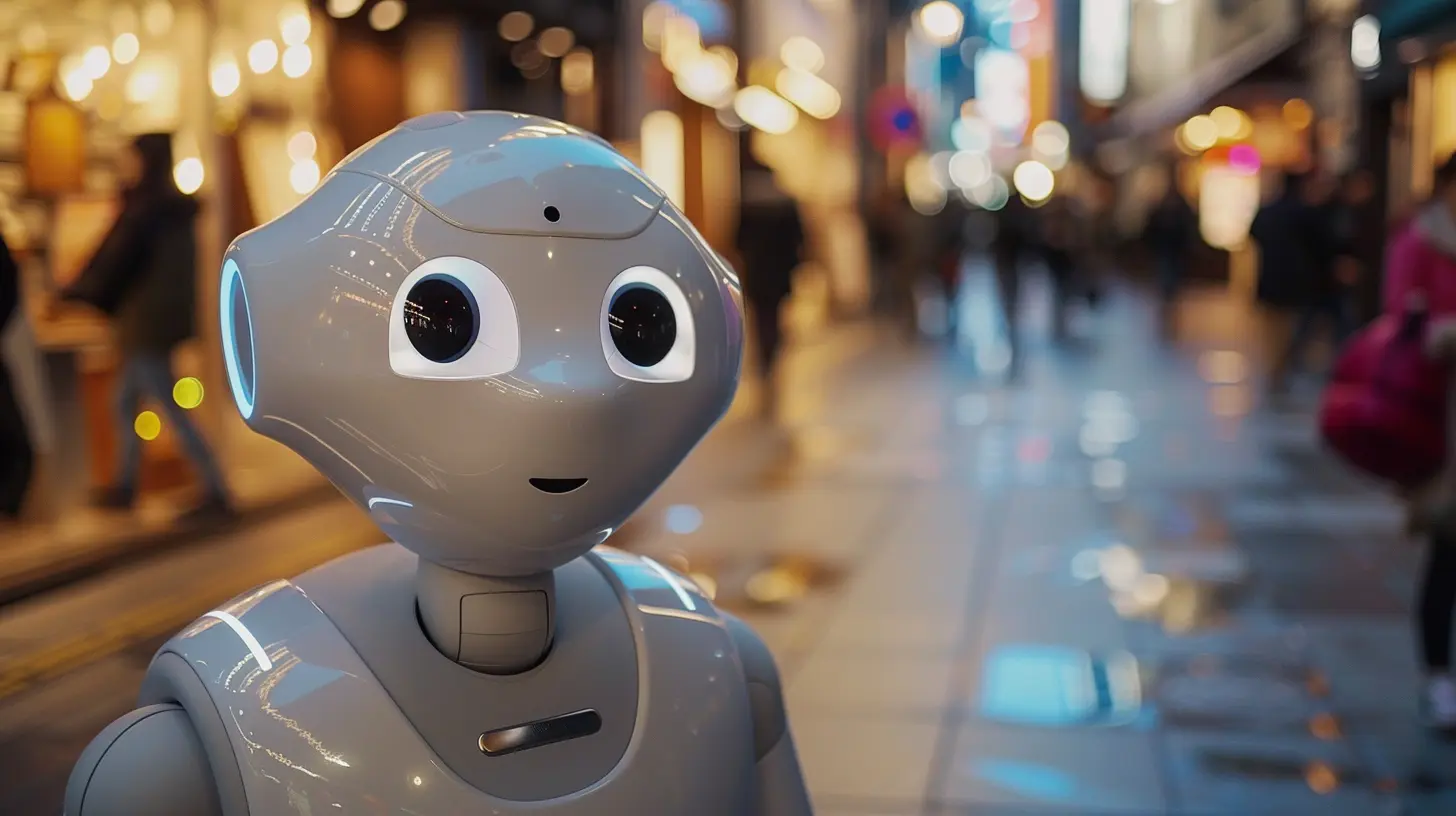
The Rise of AI in Digital Marketing
AI has been making waves across various industries, but its impact on digital marketing is nothing short of revolutionary. Why? Because AI excels at processing data—lots of it. And if there’s one thing digital marketing has in abundance, it’s data.Think about it: every interaction you have online leaves behind a digital footprint. Whether you’re liking Instagram posts, searching for a new pair of shoes, or binge-watching your favorite series, there’s data being collected behind the scenes. Marketers use this data to tailor their strategies, and this is where AI comes into play. AI can sift through massive amounts of data faster than any human ever could, helping marketers make smarter, more informed decisions.
But AI doesn’t just stop at data processing. It’s also driving automation, personalization, and even creativity in digital campaigns. Let’s break it down further.
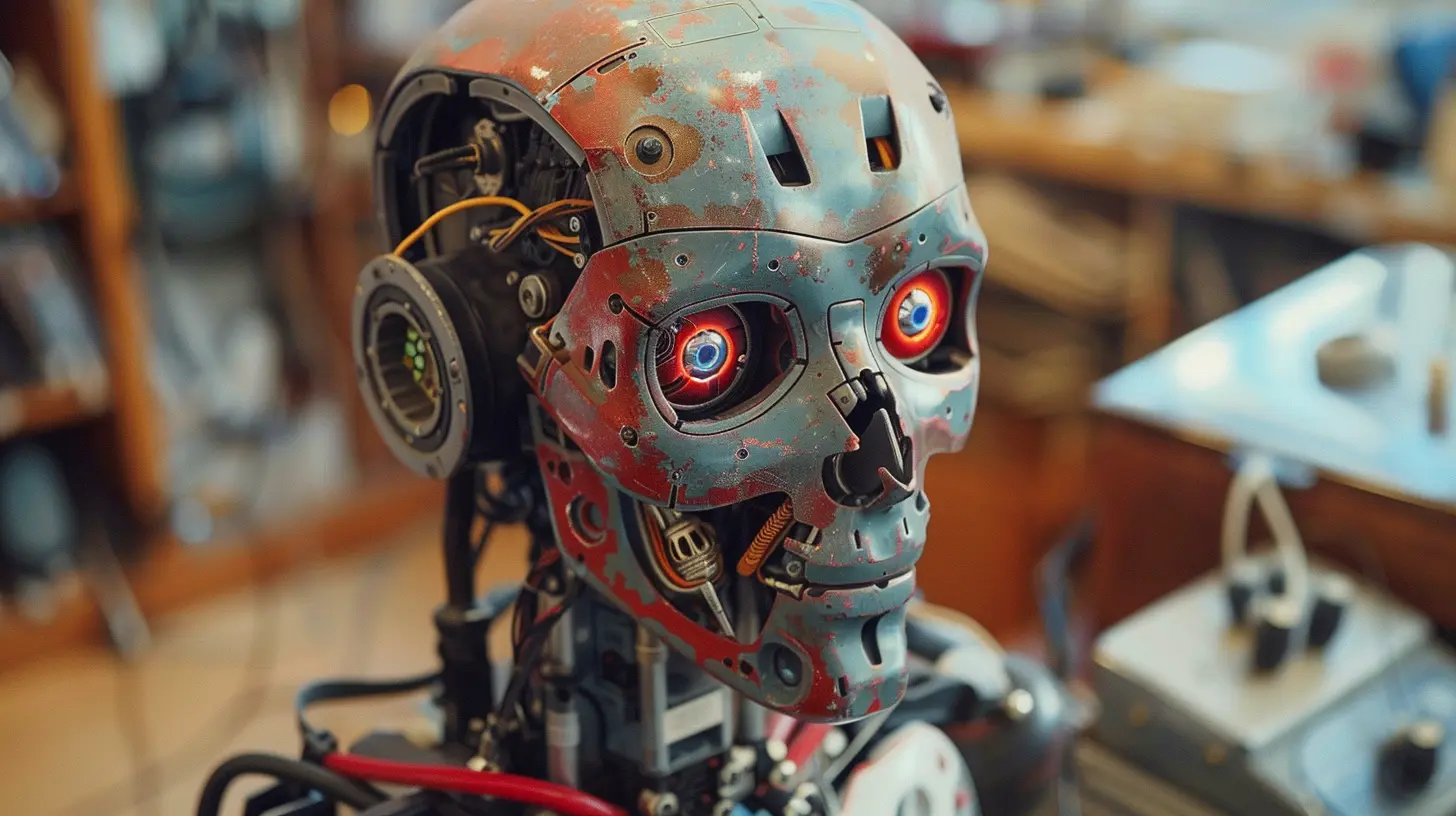
AI-Powered Personalization: Marketing Gets Personal
Ever notice how the ads you see online often seem to know exactly what you’re thinking? That’s not magic—it’s AI. Gone are the days of one-size-fits-all marketing campaigns. Today, consumers expect businesses to understand their preferences and deliver content that resonates with them.AI helps marketers do just that by analyzing user behavior and delivering personalized experiences. For instance, AI algorithms can track what products a user has been browsing and serve them ads for similar items. Or, if someone spends a lot of time reading articles about fitness, AI can suggest workout gear or healthy recipes.
It’s like having a personal shopper in your browser, making sure you see the products and services that are most relevant to you. This level of personalization improves user experience, builds trust, and—most importantly for marketers—boosts conversion rates.
Chatbots: The AI-Powered Customer Service Reps
You’ve probably interacted with a chatbot at some point. Whether it’s answering FAQs, guiding you through a product purchase, or offering customer support, chatbots are becoming the go-to for instant, reliable assistance. And guess what? They’re powered by AI.Unlike traditional customer service reps, chatbots work 24/7 without needing a coffee break. They can handle multiple inquiries simultaneously, respond instantly, and—thanks to AI—get smarter with every interaction. This not only improves customer experience but also frees up human employees to focus on more complex tasks.
Some advanced chatbots are even using Natural Language Processing (NLP) to understand and respond in a way that feels more human. They can recognize context, tone, and even sentiment, making them more adept at handling customer queries than ever before.
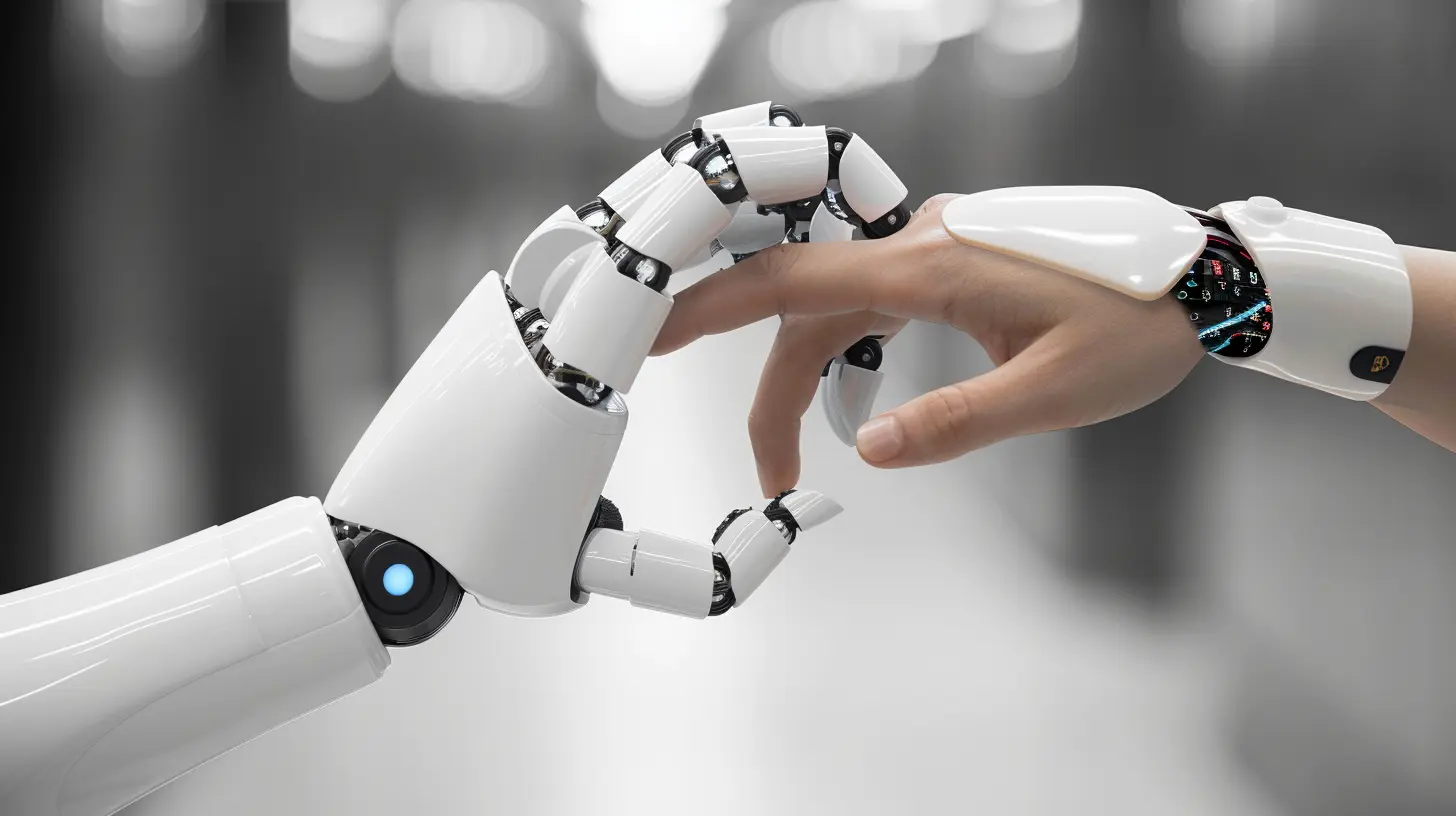
Predictive Analytics: Reading the Future
If AI had a superpower, it would be predictive analytics. This is where AI really shines, as it can predict future trends based on historical data. By analyzing patterns in consumer behavior, AI can help marketers anticipate what customers are likely to do next—and act accordingly.For example, let’s say you run an e-commerce store. With AI-driven predictive analytics, you can forecast which products are going to be in demand next month, allowing you to stock up and prepare targeted campaigns ahead of time. It’s like having a crystal ball, but much more reliable.
Predictive analytics also helps with customer retention. By analyzing buying patterns, AI can identify customers who are at risk of churning (leaving your brand) and trigger actions to bring them back. Whether it’s a personalized email or a special discount, AI ensures that you can act before it’s too late.

Content Creation: AI As the Creative Assistant?
Now, here’s where things get even more interesting. AI is not only crunching numbers and personalizing ads—it’s also starting to play a role in content creation. Yes, you heard that right. AI is beginning to assist in generating content that’s engaging and relevant to target audiences.Don’t worry, AI’s not coming for your job (yet). It’s more of a creative assistant than a replacement. Tools like GPT-3 (the technology I’m using right now) can help marketers draft blog posts, social media captions, and even email newsletters. While AI-generated content might not have the same flair and creativity as something written by a human, it’s a great starting point for busy marketers.
AI can also analyze what kind of content resonates with your audience and suggest topics that are likely to perform well. This takes a lot of the guesswork out of content marketing and ensures your efforts are focused on what matters most.
Ad Targeting: Right Message, Right Time
Ever wonder why you keep seeing ads for that vacation package you were eyeing last week? That’s AI at work again. AI-driven ad targeting ensures that the right message reaches the right person at the right time.With AI, marketers can analyze user behavior—like what websites you visit, what content you engage with, and what products you add to your cart—to deliver hyper-targeted ads. This kind of precision targeting increases the chances that users will click on the ad and ultimately make a purchase.
Beyond that, AI can also optimize ad spend. By continuously analyzing performance data, AI can automatically adjust bids and budgets to ensure you’re getting the best ROI. No more wasting money on ineffective ads—AI ensures that every dollar is spent wisely.
Programmatic Advertising: Automating the Ad Process
Programmatic advertising is another area where AI is making a big impact. In simple terms, programmatic advertising is the use of AI to automate the buying and selling of ads. It takes the manual labor out of the process, allowing marketers to focus on strategy rather than logistics.AI can analyze vast amounts of data in real-time to determine which ads should be shown to which users, and at what price. This ensures that marketers are reaching their target audience as efficiently as possible. The result? Higher conversions and lower costs.
Voice Search and AI
“Hey Siri, what’s the weather like today?”Voice search is on the rise, and it’s changing how we interact with the web. More and more people are using voice assistants like Siri, Alexa, and Google Assistant to search for information. This shift is forcing marketers to rethink their SEO strategies, and AI is playing a big role in this evolution.
AI-powered voice recognition technology is becoming more sophisticated, enabling devices to understand natural language queries better. This means that marketers need to optimize their content for voice search, focusing on conversational keywords and long-tail phrases that people are more likely to speak out loud.
For example, someone typing into Google might search for "best Italian restaurants near me," while a voice search might sound more like, "What’s the best Italian restaurant around here?" Marketers who adapt their SEO strategies to these nuances will be better positioned to capture voice search traffic.
AI and Email Marketing: Smarter Campaigns
Email marketing is far from dead—in fact, it’s evolving, thanks to AI. AI is making email campaigns smarter, more personalized, and more effective.AI can analyze user behavior, such as which emails were opened, which links were clicked, and which messages led to conversions. This data can then be used to segment your audience, ensuring that each group receives emails that are tailored to their preferences and needs.
AI also helps with email scheduling. By analyzing when users are most likely to open their emails, AI can help marketers send messages at the optimal time, increasing open rates and engagement.
AI in SEO: Optimizing for Search Engines
SEO (Search Engine Optimization) is a critical component of digital marketing, and AI is making it easier to optimize content for search engines. AI-powered tools can analyze search engine algorithms and provide insights into how to improve your website’s ranking.For example, AI can help you identify the keywords your target audience is searching for, analyze your competitors’ SEO strategies, and even provide suggestions for optimizing your website’s structure. This takes a lot of the guesswork out of SEO and ensures that your content is as search-engine-friendly as possible.
Some AI tools can also help with content optimization, ensuring that your articles are not only informative but also structured in a way that search engines love. From keyword density to meta descriptions, AI is helping marketers stay on top of the latest SEO trends.
The Future of AI in Digital Marketing
AI is already transforming digital marketing, but we’re only scratching the surface of what’s possible. As AI continues to evolve, we can expect even more exciting developments. Imagine AI that can create entire marketing strategies from scratch, or AI that can predict consumer behavior with near-perfect accuracy.One thing’s for sure: AI isn’t going anywhere, and the businesses that embrace it will be the ones that thrive in the ever-changing digital landscape. Whether you’re a marketer, a business owner, or just someone curious about the future, AI is something you should be paying attention to.
Conclusion
So, how is AI powering the future of digital marketing? In almost every way imaginable. From personalized ads to predictive analytics, AI is making marketing smarter, more efficient, and more effective. It’s improving customer experiences, automating repetitive tasks, and even helping with creativity. Sure, AI might not replace human marketers anytime soon, but it’s definitely making their jobs easier—and more exciting.As AI continues to evolve, the future of digital marketing looks brighter than ever. The question isn’t whether you’ll use AI in your marketing strategy, but how soon you’ll start.
all images in this post were generated using AI tools
Category:
Digital TransformationAuthor:

Reese McQuillan
Discussion
rate this article
24 comments
Abram McCollum
Great insights! It's fascinating to see how AI is transforming digital marketing. The potential for enhanced targeting and personalization truly represents the future of engaging customers more effectively. Thank you for sharing!
February 13, 2025 at 7:41 PM

Reese McQuillan
Thank you! I’m glad you found the insights valuable. The future of digital marketing with AI is indeed exciting!
Sheena Cain
AI in digital marketing is like having a super-smart intern who never sleeps—just hope it doesn’t decide to start taking coffee breaks while we’re trying to boost those conversion rates!
February 1, 2025 at 5:52 AM

Reese McQuillan
Absolutely! AI's relentless efficiency can significantly enhance our marketing efforts, but we must ensure it's effectively managed to maximize its potential.
Juliet McAlister
Fascinating insights! I’m excited to see how AI continues to evolve and reshape digital marketing strategies for brands and consumers alike!
January 26, 2025 at 3:59 AM

Reese McQuillan
Thank you! I'm excited too—AI's potential in digital marketing is truly transformative!
Emma McGrady
Great insights on the integration of AI in digital marketing! It's fascinating to see how these technologies are transforming strategies and enhancing customer engagement. I look forward to seeing how these advancements continue to shape the industry in the future.
January 21, 2025 at 9:53 PM

Reese McQuillan
Thank you! I'm glad you found the insights valuable. Exciting times ahead as AI continues to evolve and redefine digital marketing strategies!
Georgina Shaffer
AI: The wizard behind your next viral cat video!
January 18, 2025 at 5:59 AM

Reese McQuillan
Absolutely! AI is the creative spark that transforms ideas into engaging content, perfect for capturing attention in today’s digital landscape.
Fenn Snyder
AI transforms digital marketing strategies, enhancing targeting, personalization, and customer engagement effectively.
January 14, 2025 at 12:01 PM

Reese McQuillan
Thank you for your insightful comment! AI indeed revolutionizes digital marketing by enabling precise targeting and deeper personalization, ultimately enhancing customer engagement.
Danica Snyder
Great article! It's fascinating to see how AI is transforming digital marketing. The insights shared really highlight the potential for creativity and efficiency. Excited to see where this technology takes us next!
January 11, 2025 at 9:22 PM

Reese McQuillan
Thank you for your kind words! I'm glad you found the insights valuable. The future of AI in digital marketing is indeed exciting!
Zinn Turner
Embracing AI in digital marketing isn't just a trend; it's a game-changer! By leveraging innovative technologies, we can unlock unparalleled creativity and efficiency. Let's seize this opportunity to connect with our audiences in smarter ways and shape a brighter, more engaging future. The possibilities are endless!
January 9, 2025 at 11:26 AM

Reese McQuillan
Absolutely! AI is revolutionizing digital marketing by enhancing creativity and efficiency, allowing us to connect with audiences in innovative ways. Exciting times ahead!
Jax Pacheco
In the dance of code and creativity, AI ignites the spark of connection, Crafting campaigns that resonate, A symphony of data and dreams, Where future marketing finds its voice.
January 6, 2025 at 7:23 PM

Reese McQuillan
Thank you for capturing the dynamic interplay between AI and creativity in marketing! Your poetic perspective beautifully highlights how technology enhances our ability to connect and inspire.
Ivy McCoy
AI in digital marketing? It’s like giving a squirrel a smartphone—unexpectedly brilliant! Fasten your seatbelts as algorithms take the wheel, serving up personalized ads like your barista serves your morning coffee—hot, fresh, and just what you didn't know you needed!
January 3, 2025 at 9:40 PM

Reese McQuillan
Absolutely! AI is transforming digital marketing in surprising ways, delivering tailored experiences that consumers crave. Exciting times ahead!
Macey Tucker
AI isn’t just a trend; it’s the engine driving marketing evolution—adapt or get left behind!
January 3, 2025 at 12:25 PM

Reese McQuillan
Absolutely! Embracing AI is essential for staying competitive in the ever-evolving landscape of digital marketing. It's not just a tool; it's a game changer.
Uzi McNeal
Sure, AI is transforming digital marketing, but let's not pretend it's a magic wand. It's just spitting out data faster—marketers still need creativity and strategy. So, while you’re riding the tech wave, don’t drown in the algorithms. Get real!
January 3, 2025 at 3:29 AM

Reese McQuillan
Absolutely! AI enhances data processing, but creativity and strategy remain essential for effective marketing. Balancing technology with human insight is key to success.
Imani McLaughlin
What an exciting read! 🌟 The potential of AI in digital marketing is truly inspiring. It's amazing to see how technology is transforming strategies and driving creativity. Here’s to a bright future ahead! 🚀
January 2, 2025 at 4:24 AM

Reese McQuillan
Thank you! I'm glad you found it inspiring—AI truly is revolutionizing digital marketing! 🚀
Primrose Frye
This article insightfully captures AI's transformative role in digital marketing, highlighting its ability to personalize customer experiences and optimize strategies, ultimately driving engagement and conversion rates.
January 1, 2025 at 7:28 PM

Reese McQuillan
Thank you for your thoughtful feedback! I'm glad you found the article insightful—AI truly is revolutionizing digital marketing.
Maxine Parker
AI is revolutionizing digital marketing by enabling hyper-personalization, predictive analytics, and automated content generation. This transformation not only enhances consumer engagement but also optimizes marketing strategies for measurable results and efficiency.
January 1, 2025 at 12:45 PM

Reese McQuillan
Thank you for your insightful comment! AI indeed plays a crucial role in transforming digital marketing through personalization and efficiency, making it an exciting time for businesses to innovate and engage with consumers.
Elwynn Duffy
Great insights! AI's impact on digital marketing is transforming strategies and enhancing customer engagement.
January 1, 2025 at 5:23 AM

Reese McQuillan
Thank you! I'm glad you found the insights valuable. AI truly is revolutionizing the way we connect with customers.
Laila Clark
This article brilliantly highlights the transformative role of AI in digital marketing. From personalized campaigns to predictive analytics, AI is reshaping strategies and enhancing customer engagement—truly the future of the industry!
December 31, 2024 at 12:33 PM

Reese McQuillan
Thank you for your insightful comment! I'm glad you found the article highlights the exciting impact of AI on digital marketing. It's indeed a game-changer for the industry!
Elizabeth Kelly
As we stand on the brink of a digital revolution, the whispers of AI beckon. Can this silent architect unlock secrets of persuasion and engagement we've yet to fathom, or will it unveil a new realm of enigmatic challenges?
December 31, 2024 at 3:29 AM

Reese McQuillan
AI holds immense potential to enhance persuasion and engagement in digital marketing, but it also presents challenges that we must navigate thoughtfully.
Pilar Beck
AI is transforming digital marketing by enhancing customer insights, personalizing campaigns, and optimizing strategies for better engagement and ROI.
December 30, 2024 at 7:58 PM

Reese McQuillan
Absolutely! AI's ability to analyze data and personalize experiences is revolutionizing digital marketing, leading to more effective campaigns and improved ROI.
Azurael McKibben
Exciting insights! It’s amazing to see how AI is transforming digital marketing—making it smarter and more personalized. Can't wait to see what's next!
December 30, 2024 at 12:35 PM

Reese McQuillan
Thank you! I'm glad you found the insights exciting. The future of AI in digital marketing is indeed promising, and I can't wait to see the innovations that unfold!
Lys McVicker
AI ignites creativity, transforming digital landscapes into vibrant futures.
December 30, 2024 at 5:33 AM

Reese McQuillan
Thank you! AI truly enhances creativity, shaping the future of digital marketing in exciting ways.
Myles Allen
As AI weaves its intricate web in digital marketing, one wonders: are we truly guiding the algorithms, or are they quietly steering us into uncharted territories? The future holds secrets we have yet to uncover.
December 29, 2024 at 7:49 PM

Reese McQuillan
It's a complex dance; while we guide AI with our insights, its capabilities are reshaping our strategies in ways we’re still learning to navigate.
Zealot McVeigh
Unseen forces at play: is AI reshaping marketing or manipulating us?
December 29, 2024 at 3:36 AM

Reese McQuillan
AI is both reshaping marketing strategies and influencing consumer behavior, but it's ultimately up to us to harness its power ethically.
Nix Hodge
This article sheds light on AI's transformative role in digital marketing. It's exciting to see how technology enhances personalization and efficiency, paving the way for innovative strategies.
December 28, 2024 at 7:36 PM

Reese McQuillan
Thank you for your insightful comment! I’m glad you found the article highlights the exciting advancements AI brings to digital marketing.
MORE POSTS

The Benefits of Using a Smart Display as a Personal Assistant

How Space Tourism Will Be Powered by Cutting-Edge Tech
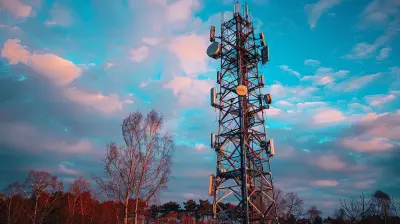
The Role of 5G in Fighting Climate Change

Edge Computing: Bringing Cloud Power Closer to You

Exploring the Energy Efficiency of Proof of Stake Blockchains
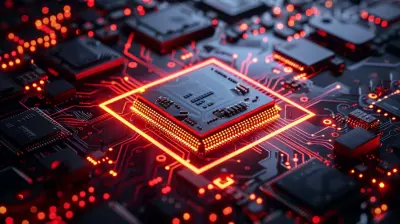
Exploring Laptops with AMD Processors: A New Era of Ryzen-Powered Devices

The Best Smartphones for Multitasking and Productivity

What Is the Role of Fiber Optics in Modern Data Centers?

For the Data Scientists: The Best Laptops for Machine Learning and AI
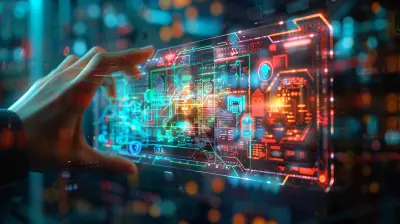
The Push Toward Transparent Gadgets: A Glimpse into the Future

Exploring the Role of AI in Modern Smartphones

Power Meets Portability: Reviewing the Latest Hybrid Laptops

The Role of Fintech in Automating Tax Filing and Compliance
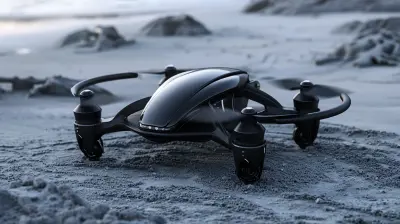
Autonomous Drones: The Next Frontier in Consumer Tech